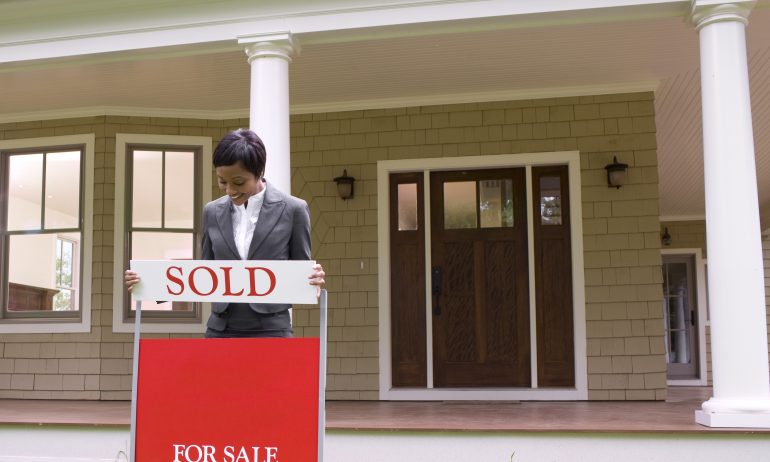How Much Does It Cost to Sell a House?
- June 16, 2021
- No Comment

Pamela Harris
What’s the Cost of Selling a House?
The average cost to sell a house is nearly 10% – 15% of its sale price—which includes agent commissions, home improvements, closing costs and moving fees. So if you sell a home for $250,000, you might pay around $37,000 to cover selling expenses.

Home Inspection
A home inspection, which runs around $280–400, can uncover problems with plumbing, electrical systems, HVAC, the roof, or even the foundation a house is sitting on. That way, any issues you find can be fixed before trying to sell the house or accounted for in the sale price.
Typically, it’s the buyer who pays for a home inspection to avoid getting hoodwinked into buying a money pit. But if you budget for an inspection before listing your home, you’ll have a chance to fix things ahead of time. That way, home repairs won’t slow down the closing process—or cause frantic buyers to change their original offer.
Real Estate Commissions
The most significant fee you’ll pay as a seller will probably be the real estate commission, ranging anywhere from 5% to 7% of the sale price, with 6% being common. Half typically goes to the seller’s agent and half goes to the buyer’s agent. This is where some homeowners will try to scrimp and consider selling the property themselves, but there are risks involved in not using an agent—setting a fair market price, advertising, and legal processes all require some degree of expertise.
Your current mortgage payoff
It’s no surprise you’ll need to pay off your mortgage when you sell your home. But the payoff amount is probably different from the balance due listed on your last mortgage statement, because of interest charges. You’ll want to know the payoff amount. If your mortgage has a prepayment penalty, that will be added to the amount due.
Home repairs
The buyer will probably order a home inspection before closing. If the report reveals problems, you may be asked to pay for repairs.

Transfer Taxes
The documentary transfer tax, also known as stamp tax or real estate transfer tax, occurs at the point of sale to make a change of ownership official. The tax varies from state to state, and is usually a percentage of the sale price. For example, it’s calculated at 55 cents per $500 of the sales price in California, or approximately $330 for a $300,000 home.
It might not seem like a lot, but little things like this can add up for a buyer. Although the buyer is normally responsible for the tax, it’s often paid for by the seller as a courtesy because the buyer has already paid a good portion of the closing costs to obtain a loan.
Closing Costs
According to Realtor.com, sellers typically pay around 1–3% of the home’s sale price in closing costs. The term closing costs refers to fees for services that help to officially close the deal on a house. For sellers, closing costs usually include paying for an attorney, title insurance company, title transfer and taxes.
Sometimes sellers offer to sweeten the deal by covering some of the buyer’s closing costs too. This is known as a seller concession. Last year, 20% of seller concessions included an offer to pay some or all of the buyer’s closing costs. Follow us to understand more.
Moving Costs
Moving out of your house could cost about $600–1,700. There are many ways to handle moving costs, such as—you guessed it!—renting a moving truck or hiring a moving company.

Should I just sell my house myself to save money?
In a hot market, many sellers may think they can sell their house themselves to avoid the commission fees.
However, most people don’t realize that if you sell your house on your own, you still have to pay for the buyer’s agent’s brokerage fee.
Since over 93% of active buyers have a real estate agent representing them, it’s the only way to attract these agents—and thus their buyers—to even consider your home.
What about that cash they would still be saving by selling their home as “For Sale by Owner,” or FSBO?
Consider what your agent brings to the party:
- Marketing, signs, advertising support, and professional photography
- The time and “hassle factor” savings of not having to be present for showings, manage calls, host an open house, set up legal representation for paperwork, and conduct the negotiations
- The legal protection that comes with working with a licensed real estate agent
- The professional market knowledge that can help you wisely price the house
- Negotiating expertise that allows your agent to extract the best terms and price from the buyer
- A wider pool of potential buyers that comes with listing your home on the MLS
- Access to other agents, who have or know potential buyers. In fact, notes Nelson, many sales can happen before a home is even listed, because agents will reach out to one another.

Leave a comment